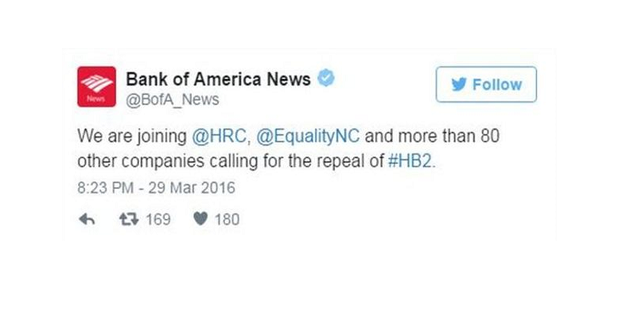
As diversity practitioners, we are witnessing significant and positive changes in the workplace and communities. Despite the amplified voices of those resisting the forward movement in addressing racial harms, we see a promising future. Women now account for almost half of the workforce, and for the first time ever, people of color made up most new hires in the U.S. workforce in 2019. About 4.5% of U.S. workers – or 11 million people – identify as LGBTQIA+, with more people self-identifying as workplaces become more inclusive.
These changes are not just statistics, but they represent a shift towards a more diverse and inclusive society. Change is evident in communities, as displayed in the multicultural and multigenerational coalitions that advocated strongly for racial equity in the wake of the tragic murder of George Floyd. People from different faith orientations are educating each other and organizing to address blatant oppression in the Israel-Hamas war. These changes are a testament to the power of diversity and the potential for a more equitable future.
The future of diversity management incorporates an Indigenous consciousness, a way of knowing and being distinct from the normative Western approach. With its trajectory toward progressive, pluralistic values, the broader social movement in the U.S. and beyond is here to stay. For organizational leaders and change agents, there is a benefit in moving away from thinking about constraints and imagining possibilities of creativity and abundance. As a diversity educator and researcher, understanding decolonization has given me the vocabulary and cognitive framework to recognize exploitative extraction and examine power imbalances. I realize that the decolonial lens is appropriate for workplaces making strides in changing systems–for example, creating more equitable structures in worker pay, productivity measures, work-life balance, and executive compensation. A decolonial approach is inherently equitable because it takes power back for underrepresented and marginalized people in decision-making.
For the individual, decolonization requires an openness to other ways of knowing and being, separate from the normative Western or white supremacist approach to thinking and behaving. For many Black and Brown people in the U.S., our tangible links to Indigeneity may have been ruptured through forced removal and migration from our ancestral lands. For Natives of Turtle Island, connection with heritage is interrupted by land grabs, treaty violations, the Indian boarding school system, and genocide. Ancestral ruptures are also present for white-identified people who have been removed from their heritage through the pressure of assimilation and the flattening of ethnic identities.
The experience of being uprooted from the homeland inspired me to unlearn a colonial mindset. I identify as Pinay, Filipina-American, a foreign-born woman of color who is bicultural and bilingual in English and Tagalog. I grew up in Manila. I am on a lifelong journey of decolonization, fully understanding the importance of constant self-reflection in unlearning whiteness and embodying the principles of equity and justice in my everyday leadership practice.
The concept of “kapwa” is defined by Pilipino Indigenous scholars Virgilio Enriquez and Leny Strobel as a “recognition of a shared identity, an inner self, shared with others.” Kapwa is more than just a cultural value; it is a necessary grounding for me as a Filipino-American who often finds myself as the tokenized Asian voice in many environments. Because kapwa is rooted in my own heritage and tradition, it is a way to orient myself away from notions of othering and competition. But more than that, it is a powerful tool for fostering collaboration. It is a reminder that we are all part of a shared identity. Understanding and respecting each other’s perspectives is crucial to getting work done with others respectfully and harmoniously.
Recognizing the sacredness of all life and respecting human dignity and flourishing is a common thread in many cultural belief systems. The concept of “kapwa,” a Pilipino Indigenous value, is akin to the principles embodied by my Black, Brown, and Indigenous siblings. It is a recognition of one’s worth and dignity, similar to the Zulu concept of Sawubana, “I see you.” Among my relatives Indigenous to Turtle Island, there is a notion of being in the right relationship with others, including more-than-human kin. Interconnectedness is also an essential aspect of Zen philosophy in China and Japan. Thus, kapwa is a crucial perspective in diversity work, reminding us of the broader social context in which we operate.
How can inclusive leaders bring awareness about kapwa to the workplace? A decolonial lens is relevant when the politics of assimilation and inclusion are no longer enough. My personal practice centers on cultural self-awareness and self-compassion. To offer compassion for where others are in their journey, I must first embody it. In my work with diversity leaders and employee groups, being in kapwa equates to supporting people committed to changing the workplace to be more affirming and welcoming of all identities. Often, this means focusing on how staff at all levels can model empathy and compassion for each other. In my work with Employee Resource Groups and Boards of Directors, being in kapwa requires sharing my imperfect journey toward understanding the gifts of my heritage and lineage. For instance, one can organize workshops or training sessions to educate colleagues about the decolonial mindset and its importance in fostering a more inclusive and respectful work environment. When we see our colleagues as our own selves, it is hard to treat people inhumanely to keep a title, a paycheck, or a privileged status.
It is encouraging to see that awareness about decoloniality is gaining ground in particular industries, such as evaluation, public health, education, and social work. Arguably, these industries have long been leaders in implementing effective, equitable practices. As more organizations mature in their diversity approaches, we will witness change toward problematizing white supremacy from a variety of Indigenous perspectives. In my work, I have observed openness among employee resource groups and diversity councils, which are ready for a shift in perspective that prioritizes decoloniality. Some helpful kapwa-conscious approaches include the following:
- Know who you are. Rely on your ancestors’ spiritual traditions and focus on ethical and compassionate ways of interacting with and treating others.
- Evaluate your work practices to align with the inclusive values you hold dear, such as upholding integrity, cultivating honesty, and respecting differences.
- Always center human dignity in decisions affecting other people’s lives and livelihoods.
- Recognize that the movement toward liberation goes beyond the business case for diversity, compliance with prevailing laws, or competitive advantage.
- Understand the limitations of the systems you operate within, and work deliberately with people to help them embed an equity mindset in decision-making and solving organizational issues.
My mentors, Drs. Leny Strobel and S. Lily Mendoza discuss kapwa as a consciousness anchored in recognizing that we are “enough” as we are. In liberatory discourse, there is a similar thread in appreciating abundance. In place of competitiveness, we can nurture the idea of plenty: there is enough for all: enough clients, enough work, and enough accolades to go around. For me, remembering abundance helps to neutralize the competitive tendencies that arise in environments built upon the fear and anxiety over scarcity. Applying kapwa values in the workplace prioritizes human dignity, equity, and justice. It is a commitment to dismantling oppressive systems and creating spaces where everyone can thrive and contribute their unique perspectives and talents.
References
Mendoza, S. L. L., & Strobel, L. M. (Eds.). (2013). Back from the crocodile’s belly: Philippine Babaylan studies and the struggle for Indigenous memory. Center for Babaylan Studies.
Roediger, D. R. (2001). Critical studies of whiteness, USA: Origins and arguments. Theoria, 48(98), 72-98.
Strobel, L. M. (2015). Coming full circle: Narratives of decolonization among post-1965 Filipino Americans. Center for Babaylan Studies.


















